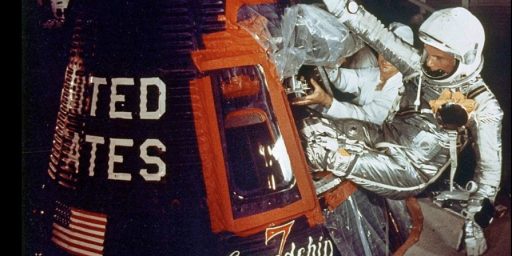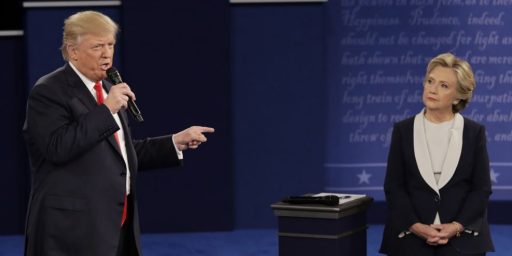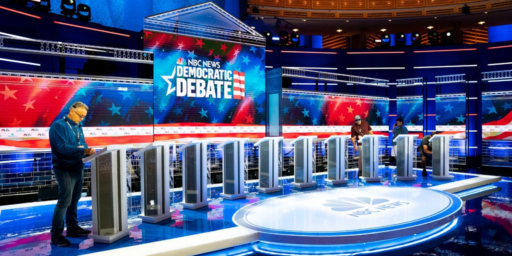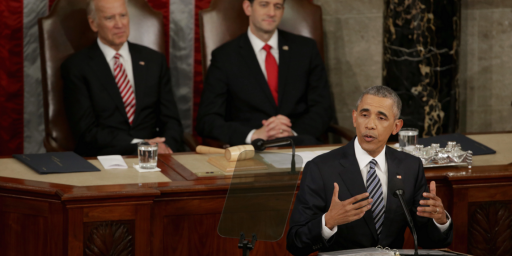EXIT POLLING
Glenn Reynolds notes that there may be some controversy over how the press handled the recall coverage. He cites this Howie Kurtz piece
News organizations had been poised to write the Hollywood ending for days, and the networks had been sitting on their exit-poll projections for hours — no Florida humiliation possible because the thing wasn’t close.
But the talking heads nonetheless sat around analyzing the race as if the outcome were in doubt. Says Glenn,
And there was something surreal about reading Drudge’s report — which was correct — that it wasn’t close, and that the networks were going to call it for Schwarzenegger the minute the polls closed, and then turning on the TV just before they did and seeing the talking heads acting as if the whole question were up in the air, when they knew better, and were just about to say so.
Yeah, I know there’s controversy about reporting this stuff before the polls close, but there’s something worse than unseemly about, basically, lying to viewers for what you see as their own good. And once you admit you’re doing it some of the time, as the networks do in these cases, you make people wonder when else you’re doing it.
I admit that there’s a conflict here but don’t see a ready solution. Reporting the results before the polls close could conceivably alter the results–although it was unlikely in this particular case given the spread involved.
Of course, the main reason for not spilling the beans early is not a concern for the ramifications for the election but rather keeping viewers glued to the set as long as possible. They’ve been doing this on the entertainment side for years. A classic example of this is the coverage of the Olympics, where live studio analysts pretend that events that took place hours earlier are still in doubt and then hype the story. And it’s spectacularly successful. For example, to this day, most people still think Keri Shrug won the U.S. a gold medal in gymnastics with a heroic performance while injured when, in reality, the U.S. had already won by the time of her vault. But the ability of television producers to time shift the events to create false drama worked.
Update (0944): To clarify, the argument is not so much that people will vote differently based on the reports–although evidence exists of both the bandwagon effect and an underdog effect–but that people who would have voted, won’t. This matters especially in elections where there are multiple candidates and/or referenda on the ballot. People turn out for presidential and gubernatorial races but vote for other things on the ticket. If they think their vote won’t matter at the top of the ticket, they might not show up at all. This can impact other races, especially close ones.






If voters are using “rational thinking” or flipping a coin to choose which candidates to vote for, it wouldn’t matter what the poll results were. (Except that the polls may motivate more people to vote if their favorite candidate is losing, and that’s presumably a good thing.)
If they’re not using “rational thinking” (and presumably just following the rest of the sheep) then again it wouldn’t matter anyway… but the exit poll results give the sheep a more accurate guess as to which one to vote for 🙂
—